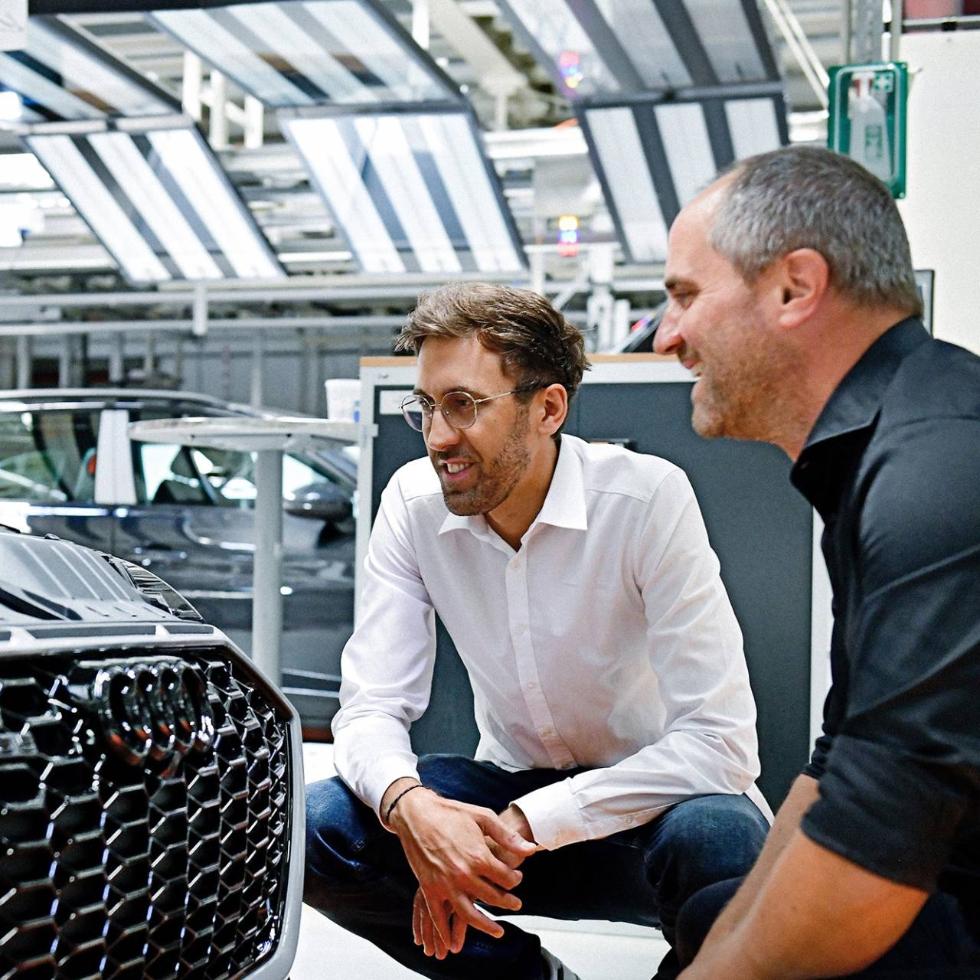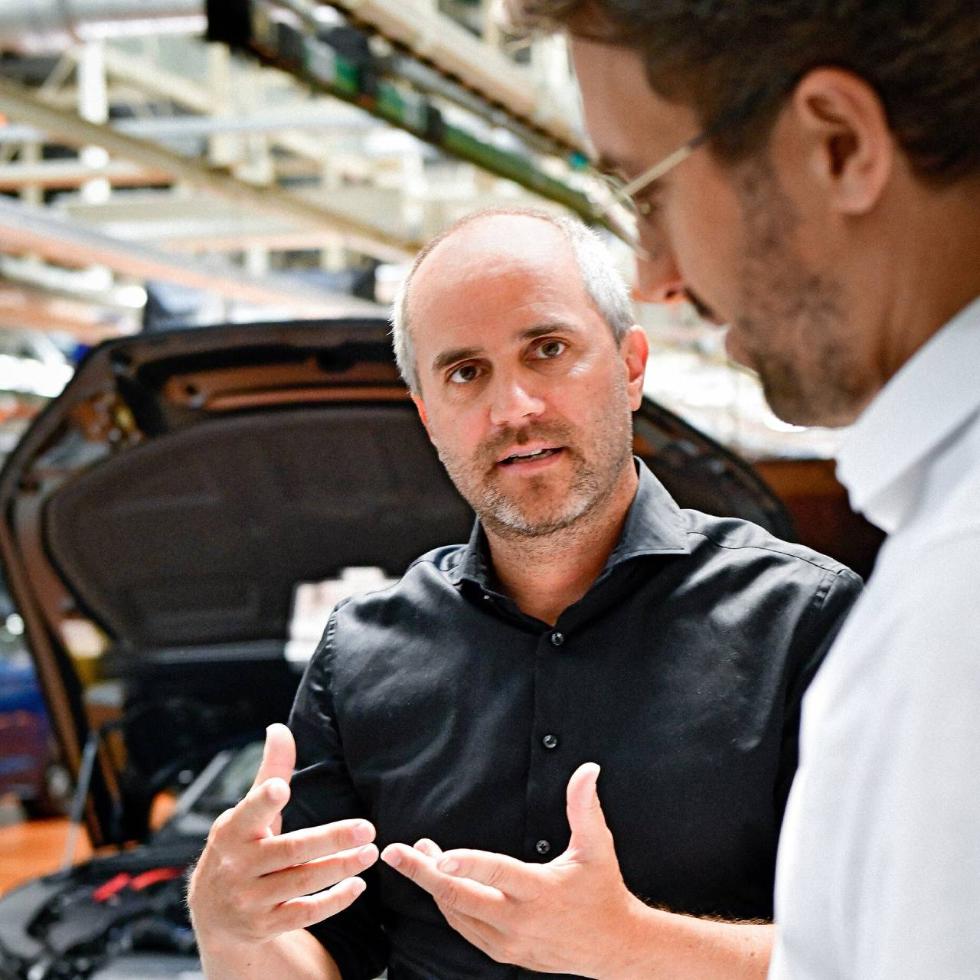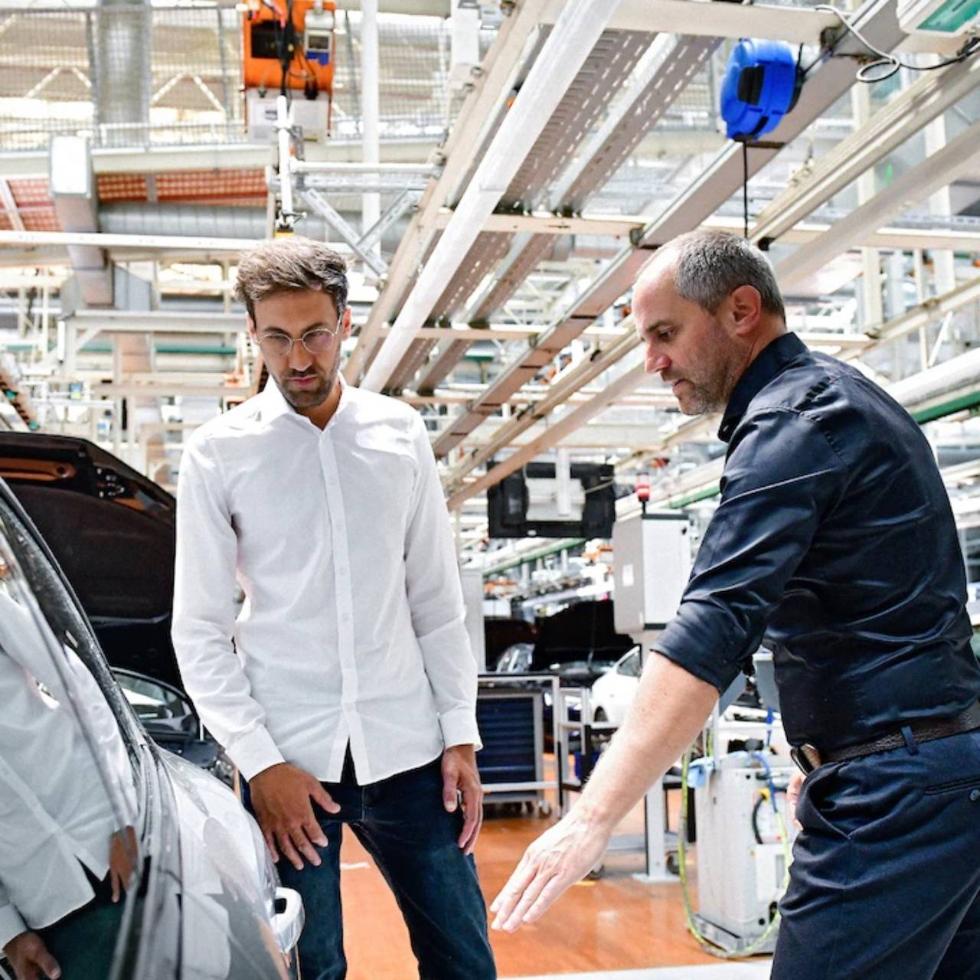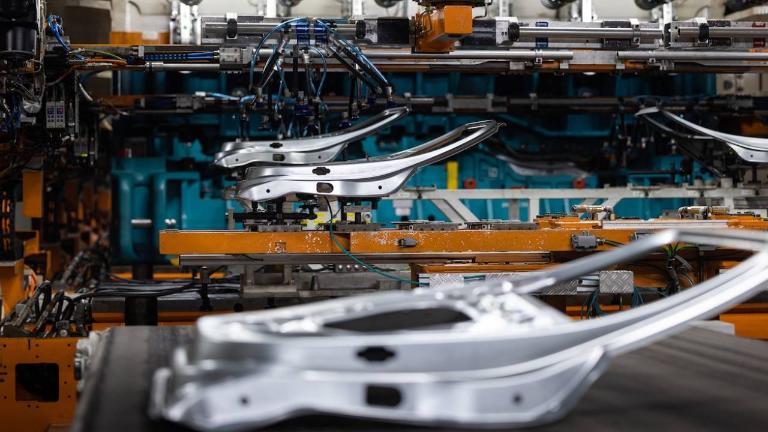AI and automotive production: the Audi formula for the future
Audi aims to become a data-driven company, increasingly using artificial intelligence in production as well: it has already two specific use cases, and will extend the project to other departments and plants in the near future.
Audi's cutting-edge technology is also expressed in production, a field in which it is one of the first car manufacturers to use artificial intelligence. But what does it mean in practice and how does AI interact with people? AI experts Rüdiger Eck and Stefan Keckl explain both the aspects, starting from the premise that using artificial intelligence does not mean imitating human intelligence, but rather running a very fast statistical evaluation to make data-based decisions. Algorithms are trained by specialists who select the data and determine what the AI will learn; in this way, how the AI was created remains transparent.

Simplifying processes with artificial intelligence
In Audi production departments, a large number of people and machines work together, and their interactions along the process chain are very complex. In addition, the production cycle generates an extremely large amount of structured, high-quality data, creating a perfect field of application for AI.
AI can simplify and automate processes for all involved, while ensuring product quality and increasing profitability. "We assume that digitization can reduce factory costs by up to 30 percent overall, and AI will be a decisive part of that", Eck explains. Keckl adds, "AI brings more transparency and accuracy to decision-making processes. The goal is to constantly improve production, and AI is a perfect tool for that".
AI at Neckarsulm and Ingolstadt
Audi currently has two specific use cases for artificial intelligence in production: the first is in the body shop at the Neckarsulm plant, where AI monitors the quality of spot welds using data from the welding machine to conclude whether individual spots are in order or not. In this way, employees no longer have to check every single spot weld themselves and can focus only on conspicuous ones.
The second is in the Ingolstadt press shop, where AI checks images of pressed parts to detect cracks. Today it serves a supportive function by showing the operator a pre-selection of problematic pieces, but in the future it will make decisions autonomously.

Human-machine relationship
Despite its great potential, AI can never completely replace people in production. "Take assembly work, for example, where the possibilities of AI are minimal. Working in this area involves a complex mixture of cognitive performance, physical movement and sensory perception. This complexity should not be underestimated, because in this humans are clearly better than robots. On the other hand, artificial intelligence can take over jobs that humans are not so good at, such as analyzing large amounts of data or repetitive work", Eck explains. Keckl, on the other hand, focuses on employees' perceptions of AI: "It is important to explain how AI works and the benefits it brings, so as not to create unnecessary worries among employees and prevent them from becoming defensive, keeping AI an abstract topic".

Sustainable decisions
The potential of AI in production can be fully exploited in four areas in particular: to improve product quality by warning when errors occur; to prevent errors by relieving people of repetitive work that doesn't add value; to optimize processes by revealing correlations that people don't recognize - thus increasing efficiency and reducing costs; and finally it can help increase the output or performance of both processes and machines.
"The best potential of AI is to assist people, just like the different assistance systems in our cars do, helping us avoid accidents. We all often make decisions based on gut instinct, but then we don't know if they are correct and sustainable. This is precisely where AI can help us make correct decisions and recognize mistakes after they happen: we will always make mistakes, but AI will point them out to us immediately", Eck tells.
Keckl adds, "We are working on getting end users to build small AI solutions themselves. We want to enable employees to organize as a team on their own. They can rely on AI to detect any errors that occur so they can focus on their actual work and be independent".
Present and future: the importance of data
Right now in Audi about 60 data experts are working on how to leverage AI in production processes. A dozen of them are focusing on machine learning and data science. Many people have recently joined the team bringing deep knowledge of production processes while continuing their training in AI, with a formula that works well.
This is the current situation, but in order for artificial intelligence to reach its full potential, the vision of data-driven decision-making needs to be expanded on a company-wide scale, so that Audi truly becomes a data-driven company.
Source: AUDI AG
VGI | Responsible OU: VP | Creation date: article date | Class 9.1
